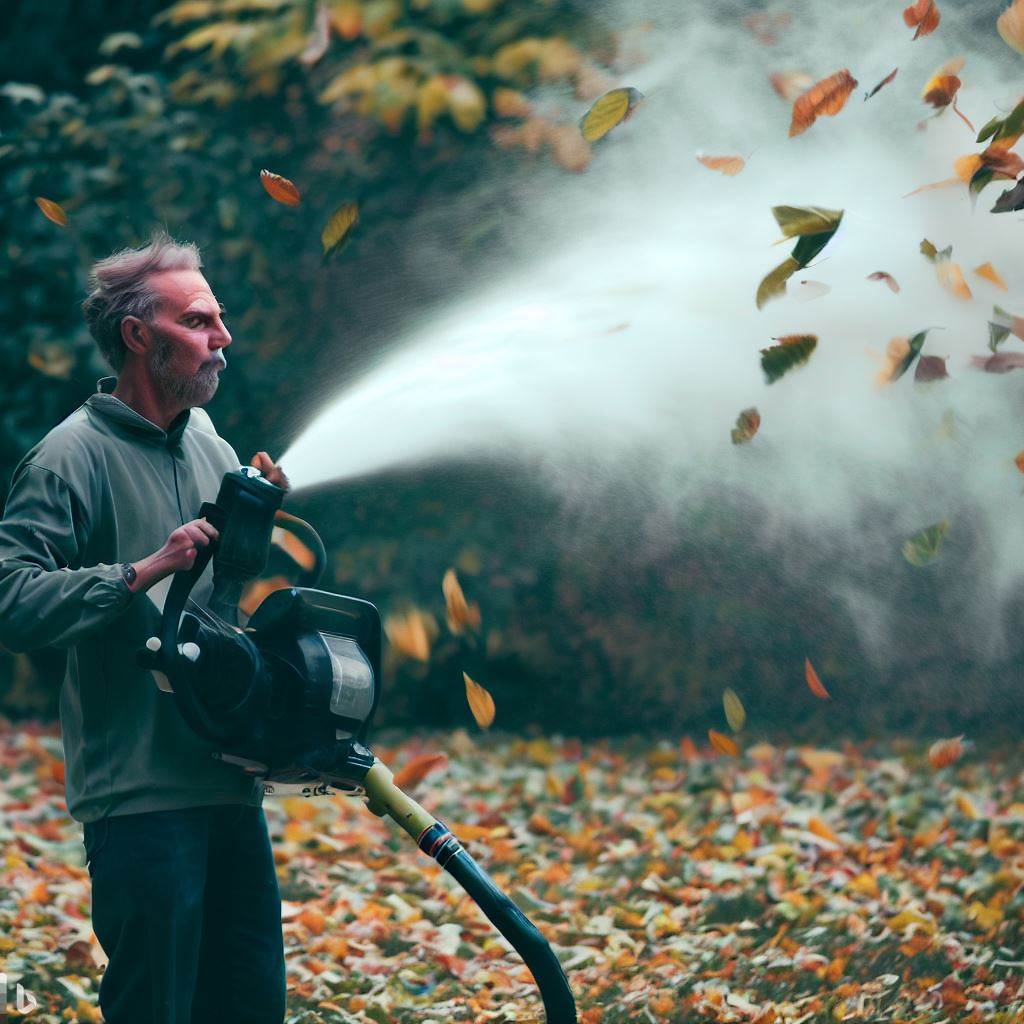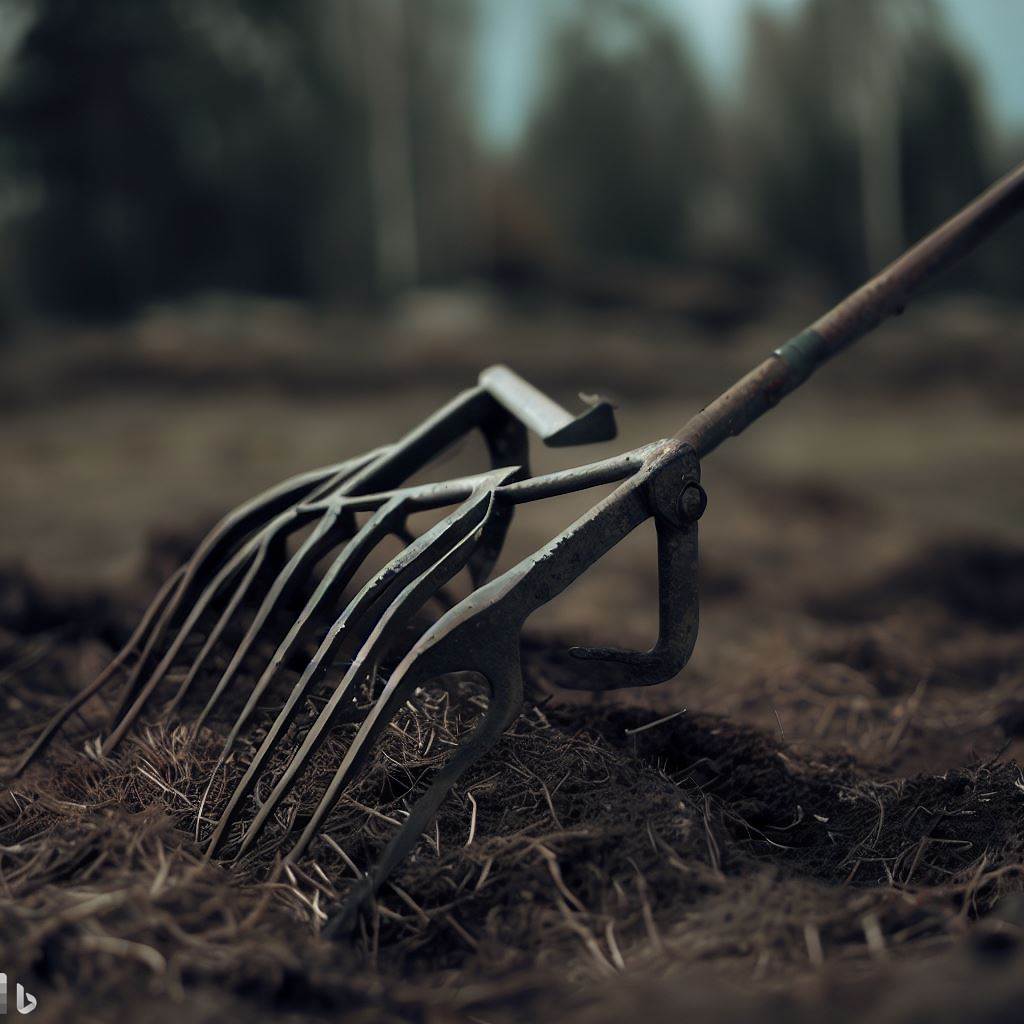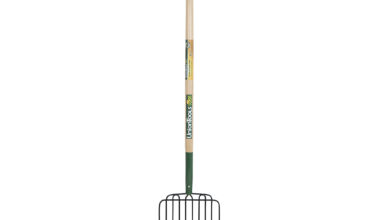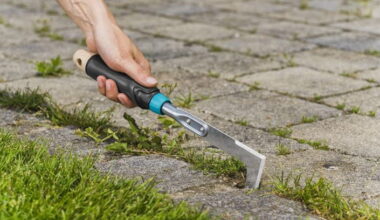As autumn descends and leaves begin to flutter down, a conundrum unfolds in every yard. The timeless struggle between the humble rake and its high-tech cousin, the leaf blower, renews itself. We stand at this critical juncture each year thinking: Rake vs leaf blower, which tool should grace our hands this season?
At first glance, one may be tempted by the raw power of the leaf blower – it’s modernity personified! It roars with an energy that almost makes you feel like a superhero taming unruly nature with a push of a button. But wait! Let’s not dismiss old faithful – the rake! With no cords or batteries to worry about, plus its silent operation, raking has become almost meditative.
Intrigued? Well then buckle up folks because we are about to dive deep into this battle royale of autumn cleanup tools in our next sections. Will it be brute force or delicate finesse? Continue reading as we dissect both contenders’ strengths and shortcomings meticulously.

Efficiency and Speed of Leaf Clearing
When it comes to clearing your yard of fallen leaves, efficiency and speed are key factors to consider. While raking can provide a sense of satisfaction, leaf blowers have gained popularity due to their ability to get the job done quickly.
With a leaf blower, you can move piles of leaves effortlessly by simply directing the airflow in the desired direction.
On the other hand, raking requires physical exertion and may take longer depending on the size of your yard.
Many people prefer using leaf blowers because they cover larger areas more efficiently compared to rakes. If you have a large yard or lots of trees shedding leaves during autumn, investing in a high-quality leaf blower could save you valuable time and energy.
Cost Implications and Long-term Maintenance
When deciding between a rake and a leaf blower, cost implications and long-term maintenance should also be taken into consideration. Rakes are generally cheaper upfront since they don’t require any additional equipment or power source.
They also tend to have minimal maintenance costs as there are no motors or batteries that need regular servicing.
Leaf blowers, on the other hand, come with varying price tags depending on their features such as power source (electric vs gas), blowing capacity, and noise levels.
Electric leaf blowers tend to be more affordable than gas-powered ones but may not always offer as much power for heavy-duty tasks. Additionally, gas-powered models require ongoing fuel costs.
In terms of long-term maintenance, leaf blowers often need more attention due to their engines or motors that may require oil changes or parts replacements over time. Rakes generally only need occasional cleaning or handle replacement if necessary.
Tool Versatility: Tackling Different Types of Debris

While both rakes and leaf blowers are primarily used for clearing leaves, it’s worth considering their versatility when it comes to tackling other types of debris in your yard.
Rakes can be useful for gathering and removing not just leaves but also grass clippings, small branches, and other lightweight debris. This makes them a versatile option for general garden maintenance.
Leaf blowers, on the other hand, may have additional features such as vacuuming capabilities or mulching functions that allow you to collect and shred leaves into compostable material. These advanced functionalities make leaf blowers more suitable for specific tasks beyond simple leaf removal.
Environmentally Friendly Considerations in Use
When choosing between a rake and a leaf blower, it’s important to consider the environmental impact of each tool. Rakes have no negative impact on the environment since they are manually operated without using any fuel or electricity.
They are considered a sustainable option for those who prioritize eco-friendly gardening practices.
Leaf blowers, however, require electricity or fuel consumption to operate. Gas-powered models release emissions that contribute to air pollution while electric ones rely on grid electricity which may come from non-renewable sources.
If environmental sustainability is important to you, opt for an electric leaf blower or stick with traditional raking methods whenever possible.
Exertion Levels Required for Rake vs Blower Operation
One crucial factor to consider when deciding between a rake and a leaf blower is the level of physical exertion required during operation. Raking requires manual labor involving repetitive movements like bending down and pulling leaves toward you.
While this can provide exercise benefits if done correctly with proper posture and technique, it can also strain muscles or cause back pain if done incorrectly or overexerted.
On the contrary, using a leaf blower significantly reduces physical effort as all you need to do is direct the airflow. This makes leaf blowers a more suitable option for individuals who may have physical limitations or prefer a less physically demanding approach to yard work.
The Noise Factor and Neighborhood Consideration

Noise pollution is another important aspect to consider when choosing between a rake and a leaf blower.
Rakes operate silently, making them ideal for those living in noise-sensitive neighborhoods or for people who simply prefer peace and quiet while working in their gardens.
Leaf blowers, however, can be noisy depending on their power source and model. Gas-powered leaf blowers tend to be louder compared to electric ones.
If you live in an area with sound restrictions or close-knit neighbors, it’s crucial to check local regulations regarding the use of leaf blowers before making your choice.
Practicality and Storage Requirements
Lastly, practicality and storage requirements should also play a role in your decision-making process. Rakes are lightweight tools that can easily be hung on hooks or stored vertically without taking up much space.
They require minimal maintenance and can easily fit into small sheds or garages.
On the other hand, leaf blowers come in various sizes with different accessories which may require more storage space.
Additionally, if you opt for a corded electric blower, you need access to electrical outlets within range of your yard. Gas-powered models will require fuel storage as well.
Consider the available storage space you have before purchasing either tool as it could impact convenience and accessibility throughout the year.
Conclusion
Both rakes and leaf blowers have their advantages when it comes to clearing leaves from your yard during autumn cleanup.
The choice ultimately depends on factors such as efficiency preferences, budget constraints, environmental considerations, physical abilities, use restrictions, and practicalities involved.
Whichever tool you choose, focusing on efficient techniques, cost-effective options, and mindful environmental practices will ensure successful autumn leaf removal while keeping your yard looking beautiful.


